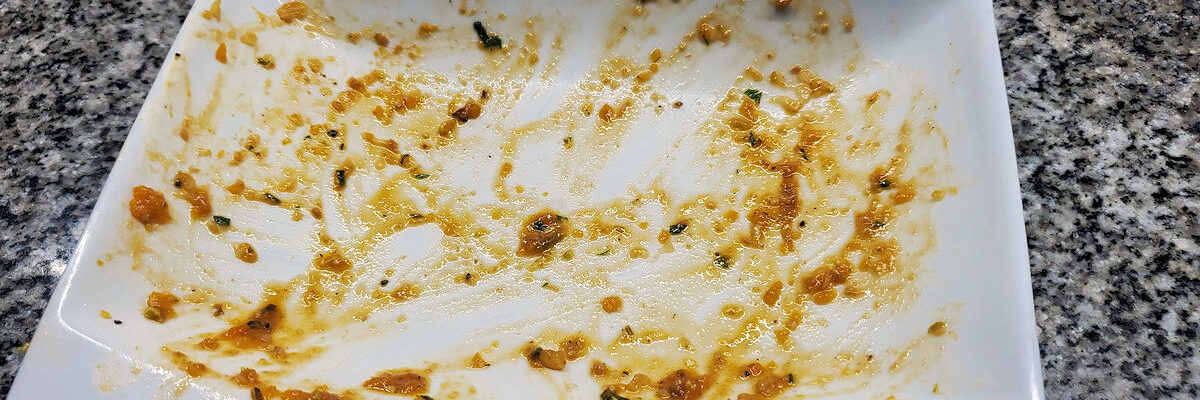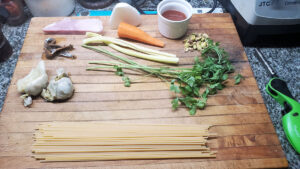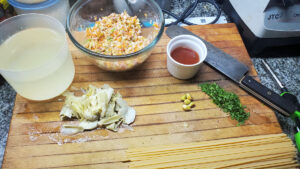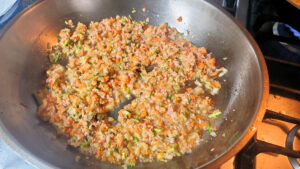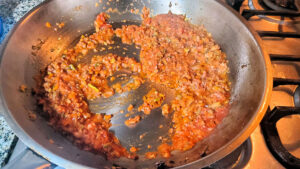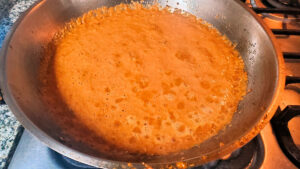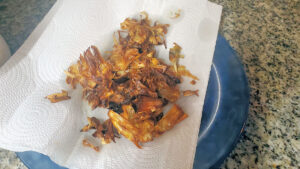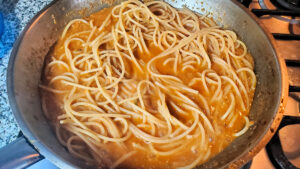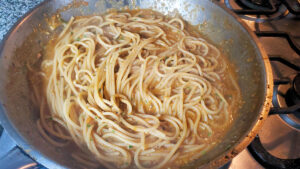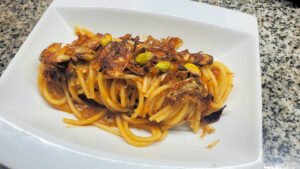There once was a poet in Italy named Filippo Tomasso Marinetti. In the leading gastronomy magazine, La Cucina Italiana, in the early 1930s, he wrote the Manifesto of Futurist Cooking, a screed on Italian food traditions that became infamous for its dissing of pasta, among other things. In it, he declared that pasta was “an absurd Italian gastronomic religion”, and called for its abolition from the national diet. His Futurist society embraced things like technology and war, and what we’d call toxic masculinity today, and at the same time decried antiquated traditions, in their minds, of things like books, libraries, museums, art, and… pasta. He followed up the magazine piece with a book, Futurist Cooking, that further expounded on his ideas around food.
One wonders just exactly why a magazine devoted to the culinary arts would have published this (actually, the chief editor of the magazine was a personal friend of his), but that aside, as many Italians condemned Marinetti’s ideas, particularly about pasta, others who these days some might call the left-wing intellectual elite, rushed to his defense, and also condemned pasta. Which is kind of interesting, because there’s some strong evidence that Marinetti’s entire anti-pasta movement was inspired by fascist dictator Benito Mussolini, who wanted Italians to abandon pasta in favor of rice, and risotto.
The magazine fanned the flames of controversy by going in partners with the Puritas pasta company, and announcing a competition to create the best sauce that would go with the company’s maccheroni, which was used generically, and any of their packaged pastas was fair game. Thousands of chefs and home cooks competed in the tourney, and it was judged by a panel of experts drafted by the magazine, including, Marinetti. As part of his campaign, however, he refused to taste any of the sauces served over pasta, and had them served over rice before he would try them. In the end, former royal chef, restaurant critic, and editor at La Cucina Italiana, Amedeo Pettini, won the competition – I’m sure there was no favoritism involved.
Salsa Marinetti is not exactly a household staple, nor traditional to any part of Italy, but it remains “on the books” for its part in what was obviously a failed attempt to remove pasta from the Italian diet.
What we have here is some ham, anchovies, onion, carrot, celery, tomato sauce, parsley, pistachios, and vermicelli, or any thicker spaghetti. Not pictured, olive oil, salt, pepper, and some “potato water” – just the water left over from boiling up some potatoes that I stuck in the refrigerator because I knew I was going to make this dish.
Finely chop up the onion, carrot, celery, ham, and about half the pistachios – I just put them all in a food processor. Slice the artichoke hearts. Chop the parsley.
In some olive oil, saute the chopped mixture, a little salt and pepper, until soft and well cooked, about fifteen minutes.
Add the tomato sauce and cook down to a paste. Around now would be a good time to drop your pasta in boiling salted water.
Put this mixture into a blender along with some of the potato water, and puree completely. Return it to the pan and keep it hot and bubbling. Add more potato water if need be to prevent it from drying out. The starch in the potato water will accomplish the same thing as using pasta water has done in some of our past posts here, and, should you not happen to have potato water, just use pasta water. Add salt and pepper to taste.
Separately, fry the sliced artichokes in olive oil until golden and crisp. Drain on some paper towel and lightly salt them.
Your pasta should be, as we’ve discussed before, a couple of minutes short of done. Move it into the sauce and finish cooking it there, allowing it to absorb the flavors of the sauce as it finished to a…
perfect al dente. Add the chopped parsley.
Serve up the vermicelli garnished with the fried artichokes and remaining pistachios (whole or coarsely chopped).
And, as you can see by the photo at the top, I finished this one off! It’s really, really good. One I’ll make again!
